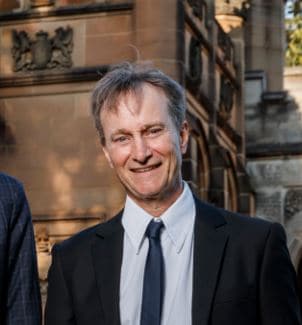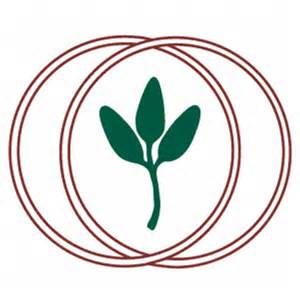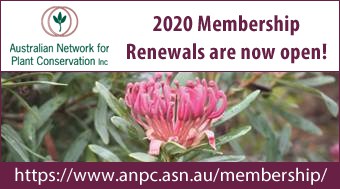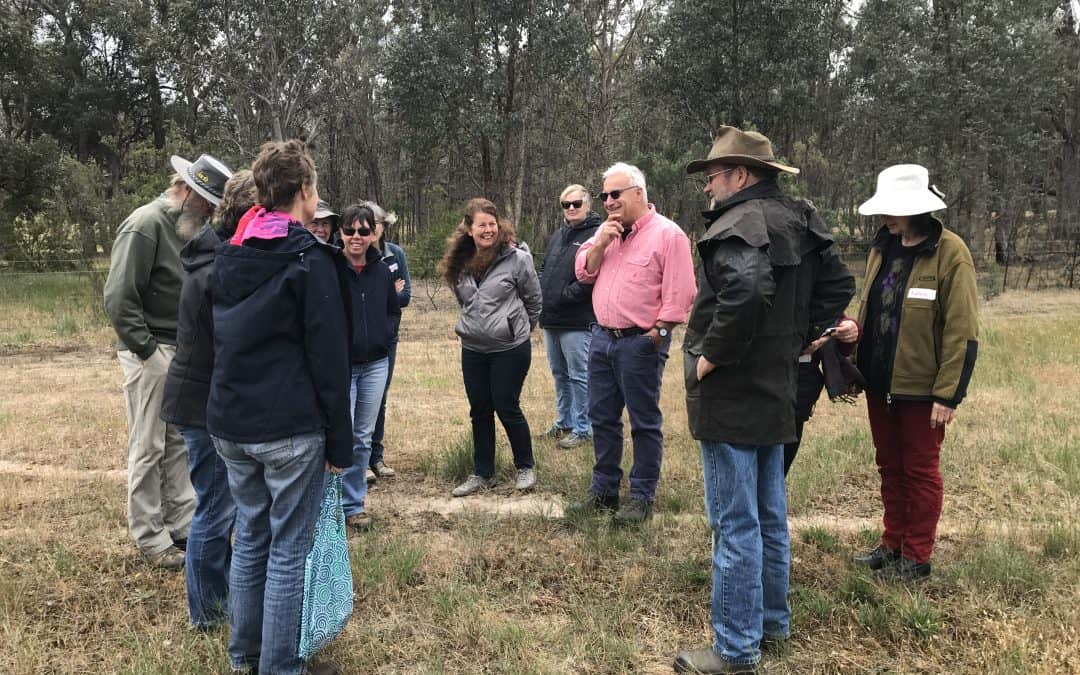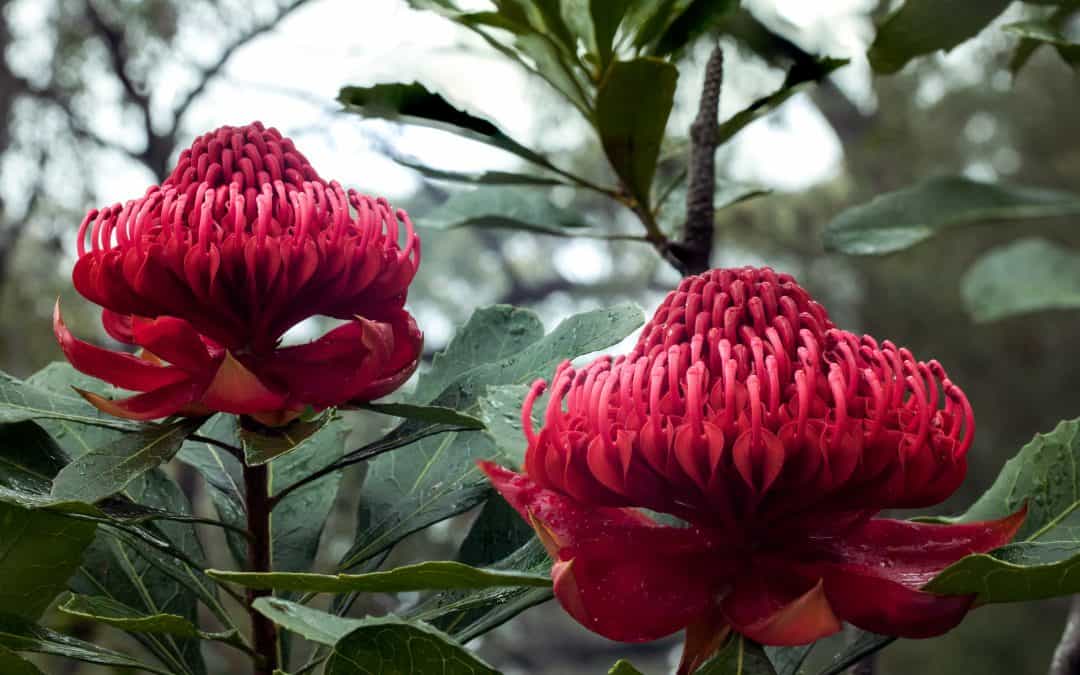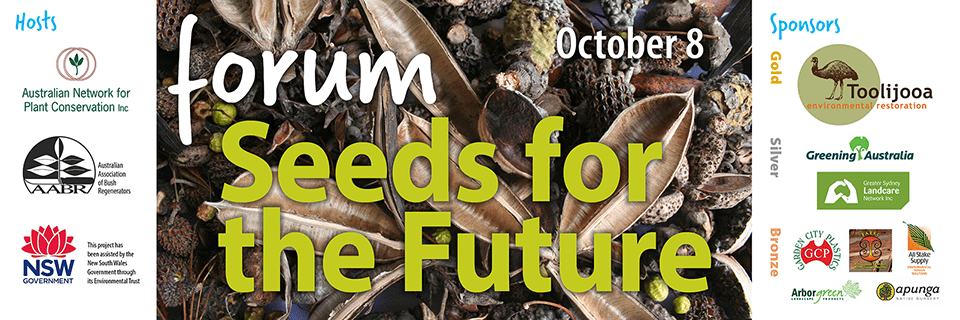
Nov 29, 2019 | News
The Annual General Meeting of the Australian Network for Plant Conservation Inc. (ANPC) was held on Wednesday 20 November 2019 at the Australian National Botanic Gardens, Canberra. Click here to read the President’s Report on what the ANPC has achieved over 2019. Thank you to all those who attended and/or nominated for Management Committee positions. Dr Tony Auld (pictured) was nominated as President, and Dr David Coates as Vice-President. Dr Stephen Bell, Dr Andrew Crawford, Dr Paul Gibson-Roy, Dr Lydia Guja and Bob Makinson were nominated as Ordinary Members. Welcome to new committee members Tony, Stephen and Lydia. And many thanks to Dr Linda Broadhurst, Dr Kate Brown, Selga Harrington, Chris Ikin, Maria Matthes and Kylie Moritz who stepped down from the committee this year. Read more.

Nov 29, 2019 | News
If your membership is due for renewal in 2020 you would have received an email from us on 4 November detailing your current membership details. If there are no changes to your details, you can pay directly by EFT/bank transfer (preferred method of payment) to the bank account provided, referencing your name and membership number so we know who you are. There is no need to complete a form. However if any details have changed, or you prefer to pay via credit card, cheque or request an invoice first, please complete the online membership form. Due to the launch of our new website early this year, the online membership form and payment gateway is now more straightforward and user friendly! Your continued involvement in the ANPC is invaluable and assists us to provide a range of important plant conservation initiatives. Please renew here.

Nov 29, 2019 | News
Wooragee Landcare Group in north-east regional Victoria held a Declining Species workshop on 10 November 2019. The group is currently involved in a Banksia marginata recovery project which has involved surveying, collecting seeds, cuttings and genetic material, as well as having plants grown for Seed Production Areas on both private and public land. ANPC’s Project Manager, Martin Driver spoke about a vital aspect of working with declining species – that is ensuring sources of seed are available for revegetation. Inadequate seed supplies are one of the blockers for revegetation being carried out on a sufficient scale to prevent species decline, and for focusing on particular declining species. A few of us in Wooragee Landcare reflected on the past seed banks and seed collection which seemed more active than at present.
The field trip was to a local farm where the owners Anne and Fleur Stelling have fenced off a paddock of remnant vegetation and removed all stock. For the first few years the paddock was lightly grazed but they have found they have had better recovery when all sheep grazing was removed. Not only have shrubs recovered and regenerated but a wonderful display of herbs and forbs – Blue Pincushion (Brunonia australis), Spur Velleia (Velleia sp), Pimelea sp, orchids, chocolate lilies and many more.
Landcare groups are in a valuable position to be able to act on species decline – they are not so bound by large strategies and have more flexibility than larger organisations.
It was a very thought-provoking session with Martin and has spurred us on to continue thinking (and acting) about seed and seed supply, so we can continue to implement on-ground works to prevent species decline.
Sue Brunskill
Wooragee Landcare
(Photo: Sue Brunskill): ANPC’s Martin Driver leading the field trip to local farm where remnant vegetation has been fenced off from grazing.
Wooragee Landcare and the ANPC gratefully acknowledge the Norman Wettenhall Foundation for funding Martin’s attendance at the workshop as part of the Bring Back the Banksias project, and Dr Maurizio Rossetto from the Royal Botanic Gardens Sydney for genetic testing.
Little Landcare Legends – ABC Gardening Australia 30 August 2019

Nov 29, 2019 | News
Need a Christmas present for someone who cares about our native plants? Just complete our Gift Membership Form and email it back to this email. They will receive four editions of Australasian Plant Conservation per calendar year as well as discounts to our workshops and conferences. You can also elect for them to receive the FREE e-version of Plant Germplasm Conservation in Australia and/or subscribe to Ecological Management and Restoration! Your gift will help contribute to plant conservation in Australia. We couldn’t achieve all we do without our members! Don’t forget you can also organise your membership renewal, if necessary, by clicking on the link above. Thank you! Download the form here.

Nov 14, 2019 | News
Communique from the NSW restoration industry
AABR / ANPC – ‘Seeds for the Future’ Forum –
Oct 8, 2019, Sydney, Teacher’s Federation Auditorium
The ecological restoration industry is small but critical to the future of biodiverse native ecosystems in Australia, ecosystems that are essential to our nation’s clean water, functional soils and carbon capture and storage. Great strides have been made in developing successful methodologies for restoring complex ecosystems using a combination of assisted regeneration and reconstruction techniques.
Barriers exist, however, to the necessary expansion of the industry if it is to make a difference to biodiversity conservation. One critical barrier is the time lag required to collect and supply the seed required for restoration which is almost always longer than the short lead times for funding contracts. A second barrier is the wildly fluctuating demand for seed due to either dry years or the chance occurrence of large developments which impacts on the viability of many organisations or operators.
There is a need for more sustained drivers for the seed and restoration industry. Market demand needs to reach a larger scale to make it economically viable for suppliers to risk investment in seed collection and storage or cultivated seed production. Investment in seed production is required to reduce pressure from harvest from self-sustaining natural systems, increasing harvest volumes and efficiencies and managing genetic diversity of supply.
The primary current driver for restoration is for work required as a result of development consents (e.g., mining and urban development). More ambitious incentives for diverse ecosystem restoration for its own sake are required, as well as the necessary planning to ensure investment in appropriate physical and organisational infrastructure.
The Forum calls upon State and Federal governments to direct incentive funding to biodiversity restoration and the infrastructure required to support it, whether solely for conservation, as a co-benefit for developing more sustainable farming systems, better managed transport corridors, meeting carbon emission reductions, soil and water security or generating employment and community wellbeing.
With the increase in demand for restoration will come drivers for improvements to restoration training, native seed collection permitting and regulation, increased development of seed production farms and the establishment of standards for high quality seed supply.
As bureaucratic barriers to these improvements exist, the Forum calls upon agencies at all levels of government across Australia to work with industry and non-profit restoration organisations to streamline solutions in these areas.
Find out more about the Forum and download the program here.
